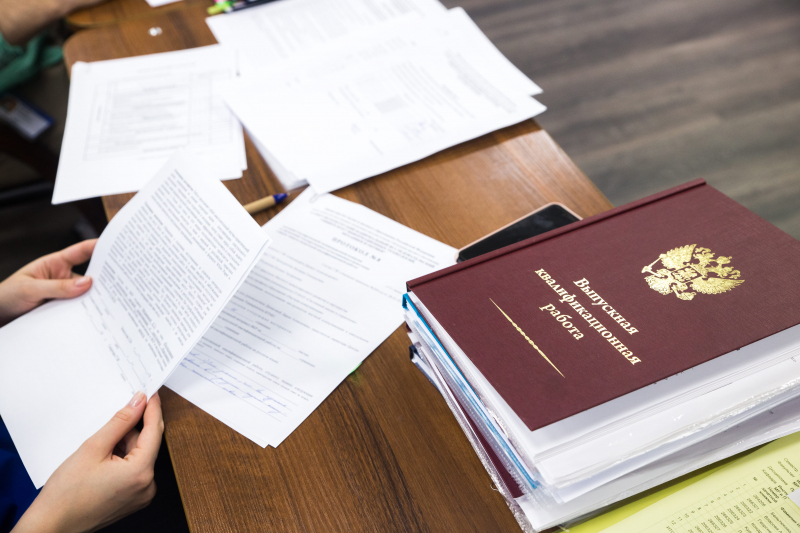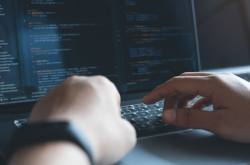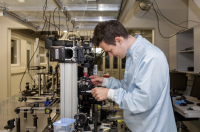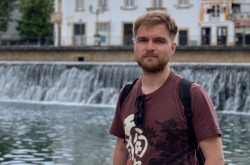The main goal of the contest is to involve more students in research and increase the quality of their training. In total, 145 Master’s and 85 Bachelor’s graduates, as well as one Specialist’s graduates and six graduates of the Faculty of Secondary Vocational Education.
The contest included three stages, the first one held at each of the university departments. Then, the deans selected nominees for the next stage – when one best paper was chosen from each of the university’s Schools. Finally, the best of the best competed at the university level.
The participating projects had to suggest new solutions and present a deep well-structured analysis of a topic.
The winning theses were published in collected papers of the contest for Bachelor’s and Master’s and Specialist’s graduates. The winners will also receive certificates, while their supervisors will get letters of recognition and diplomas for the best supervision of graduation research projects. For those students applying to PhD this achievement will equal full marks on their entrance examinations.
We got the chance to ask some of the winners about their projects and results, as well as career plans.
Mikhail Sarafanov
a graduate of the Master’s program Big Data and Machine Learning and a PhD student at ITMO’s Faculty of Digital Transformation
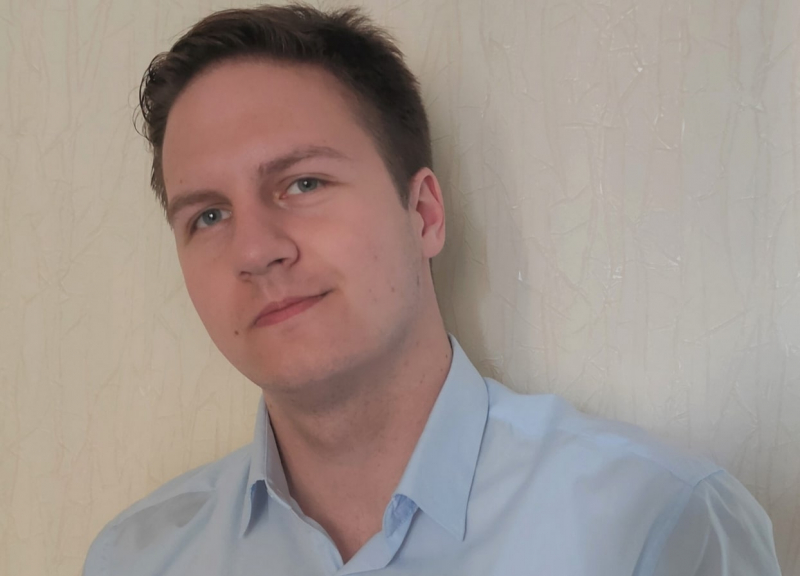
Mikhail Sarafanov. Photo courtesy of the subject
For my thesis (Filling in the Gaps in Earth’s Remote Sensing Data Using Machine Learning), I developed an algorithm that clears out missing values from the images obtained from satellites.
Satellites are equipped with special sensors that send signals of specific wavelengths back to Earth. Some wavelengths can pass through various objects, while others can’t even go through seemingly harmless clouds. This results in images with missing values in certain pixels. That’s why usually in such cases we have to resort to value retrieval algorithms. In my thesis project, I managed to outperform such algorithms.
I have quite a lot of publications, currently the number is 25. But not all of them were written during my Master’s studies; many of them were done already during my Bachelor’s. I was never out for the numbers, I simply wrote about the things I was curious about. I prepared the articles with my supervisor and fellow researchers and little by little their amount began to grow – ten, fifteen, twenty. I didn’t know how it happened.
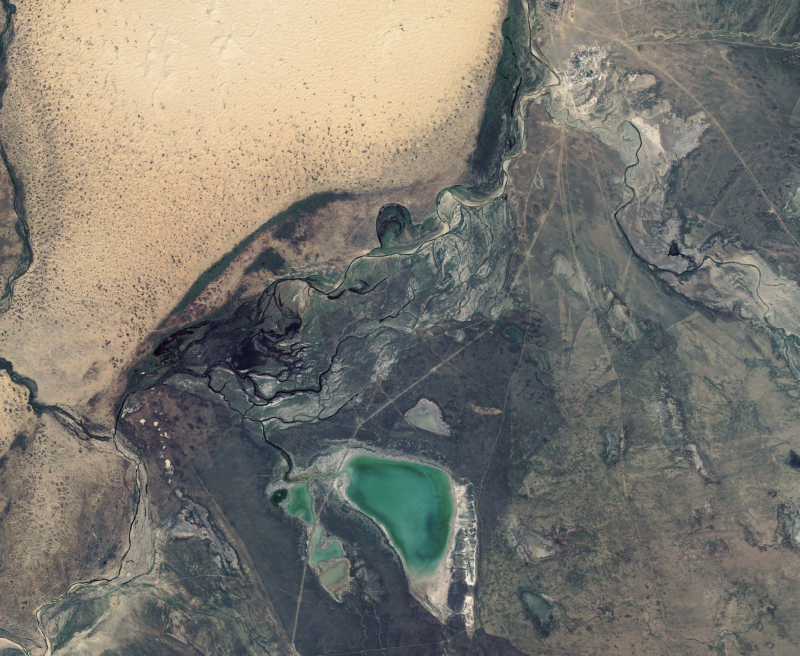
Image taken by Kanopus-V satellite. Credit: roscosmos.ru
I have only the best memories from my studies. Over the years of my Master’s, I took part in various projects that helped me acquire useful methods. Together with my fellow students, I partook in hackathons, created group projects, or compared answers for lab assignments. All of those make for wonderful memories.
I also liked the way we interacted with our supervisors when we were working on our theses. It was very productive, because I received a lot of practical advice on algorithm development, as well as writing articles, preparing talks and delivering them.
I decided to take part in the contest because of the possibility to get full marks for PhD entrance exams, though I was ready to sit the actual test. It was great to learn the results a couple of days before it took place, though. Of course, I was happy – my thesis received this acclaim and I was freed from taking the exam.
I will continue working in research during my PhD – writing articles and contributing to projects ran by our lab. I’ve bought myself a little more time to be an ITMO student. I am still at the Laboratory of Computational Modelling of Natural Systems at the National Center for Cognitive Research – I like the team very much.
Alina Semina
a graduate of the Bachelor’s program Biotechnology and a Master’s student at ITMO’s Infochemistry Research Center
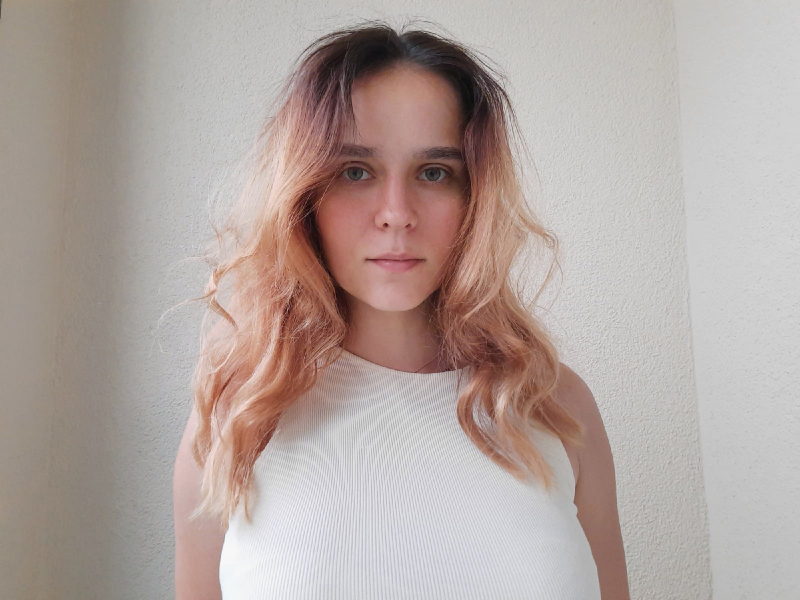
Alina Semina. Photo courtesy of the subject
In my project I develop specialized food products to improve the choice of frozen gluten free goods and introduce this new technology into production of frozen ready-to-cook meals (such as pelmeni).
Naturally, I am working as part of a team, together with my colleagues from ITMO’s Infochemistry Research Center – Svetlana Ulasevich, senior researcher, Natalia Iyakovchenko, an associate professor at ITMO’s Faculty of Biotechnologies, and Tatiana Gusinskaya, a Master’s student. The project was supervised by Ekaterina Skorb, professor and head of the Center, and Olga Orlova, head of the Digitalization of Food Technologies group.
I love ITMO and everything about it. I had some of my expectations ruined in the first years of my Bachelor’s studies, I had doubts about my future career. But now I am sure that’s what I want to do and I am ready to grow further.
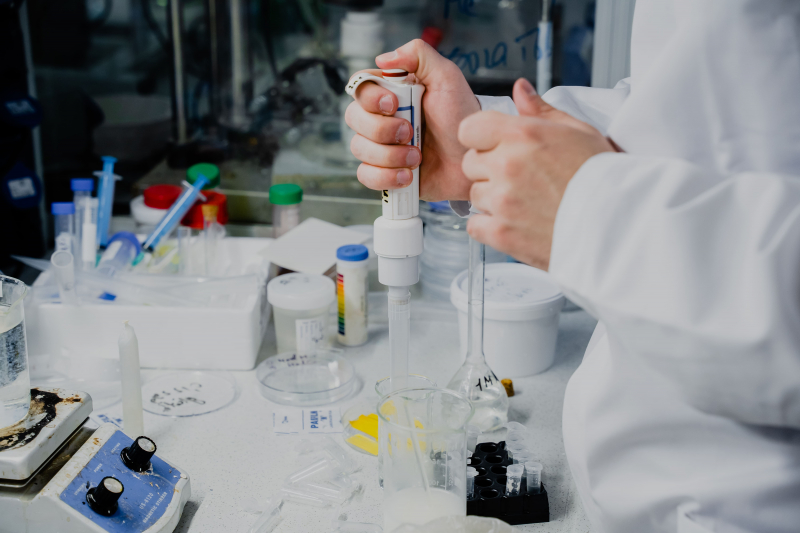
ITMO's Infochemistry Research Center. Photo by ITMO.NEWS
My main and only aspiration is to keep learning. I want to not only discover the production process, but also work with complex food systems. And the results will be seen in new kinds of specialized products that are already available in supermarkets.
I didn’t think about winning the contest when I applied, because food biotechnology at ITMO used to be overshadowed by computer technologies and physics. But it’s great to see that now biotechnology starts to get more attention, because our lives are all connected to it – no one can survive without food.
I’ve already entered one of the Master’s programs offered by the Infochemistry Research Center and I am grateful to be surrounded by smart people passionate about science. I work as a food production engineer, so my job is directly linked to food chemistry and I’d be happy to continue improving the choices and implementing new products in the food market. But in the future I am planning to do research in other fields too.
Eseniia Novokhatskaia
a graduate of the Master’s program Data, Culture and Visualization at ITMO’s Digital Humanities Research Center (DH Center)
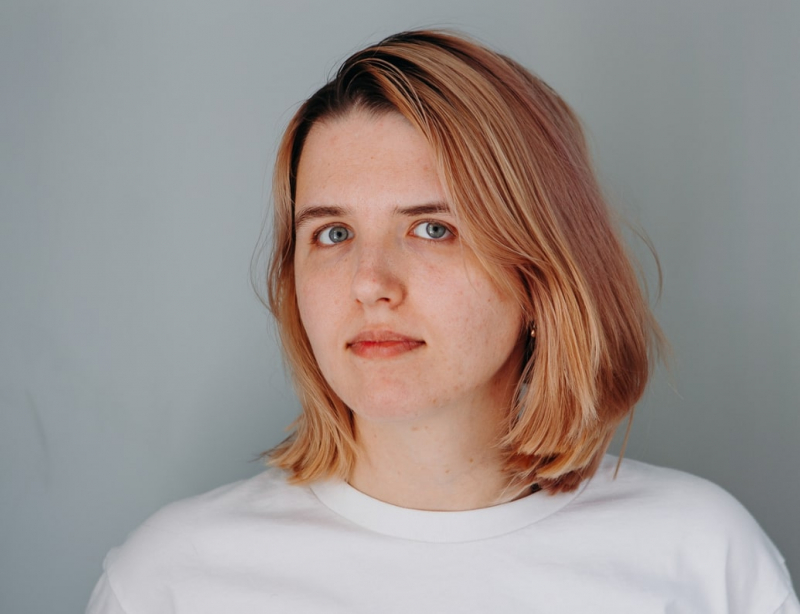
Eseniia Novokhatskaia. Photo courtesy of the subject
My project is called MemoMap and it received grants from the DH Center and the Science and Higher Education Committee of St. Petersburg. In my thesis, I developed a prototype website and now the project is still in this stage, but I have plans for its future development. I don’t have a team and have done everything on my own – from the website’s prototype to research.
The aim of the project is to create an interactive map of St. Petersburg’s monuments to attract public attention to monumental memory. MemoMap is a project that tells stories of the city’s monuments and those events or people that they commemorate.
Now, the website features the interactive map, a summary of my research, and descriptions of several ways it could go. I am now actively working on the data that I used to create the map. Also, there is a special form on my website that you can fill in to help me improve the database.
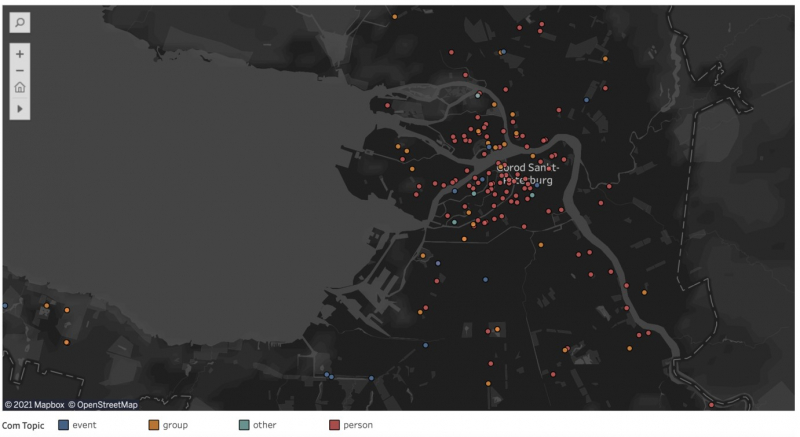
MemoMap. Credit: memomap.tilda.vs
ITMO met and even exceeded the expectations I had about it. The only thing I regret is not going on an academic mobility program. Otherwise, I turned my thesis into an interesting project, learned new skills, took part in international conferences, published research articles, and took part in organizing city-wide and international events.
When I came to ITMO, I identified as a humanities student, but now I see that nowadays this categorization of those who study humanities and natural sciences is often pointless. Now, I can grow in the field I am interested in without having to label myself.
To be honest, I was surprised to win, because there are quite a lot of cool graduation projects in different fields at the university. I had faith in my project when staying within my interdisciplinary field of digital humanities, but I didn’t put my hopes up for the university stage. It’s a great honor to me to be among the nominees for the best graduation paper.
My career in academia is now on hold, as I want to grow in a more creative field – I am currently working as a game designer at a mobile game dev studio. But I am still planning to get back into studying and enrol in a PhD program in some time. I might also become an educator.
